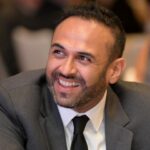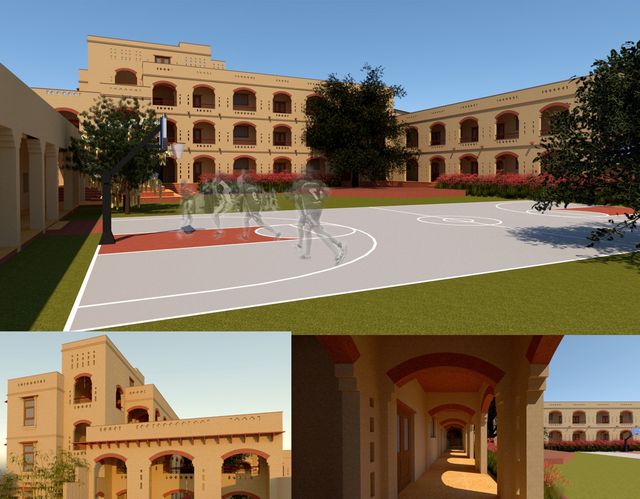By Dipak Natali, Regional President and MD, Asia Pacific, Special Olympics
Young people are future leaders. They are the ones who are going to influence others, the ones who will be running businesses years from now, and the ones who are going to be key pillars of the community. Society is constantly being formed and developed by the values and ideas of its youth. Hence, it becomes necessary to inculcate values among them that change their mindsets about intellectual disability.
Youth as catalysts
The first step to involve the youth as catalysts is to engage them in local settings. From the community level, it can then be scaled to national, regional, or even a global level. But it all starts in your own community, and in community organisations such as schools. The Special Olympics movement believes that the school setup isn’t only about academic qualifications, but indeed about what being part of a community and civilised society is.
Those lessons learnt in school don’t just stay there; students go on to implement them in the wider world. Hence, it’s important to impact young people the most when they are growing up. If an organisation or a movement makes young people the proponents of change, they will take that mantle and that responsibility seriously and from there, the rest of the community will follow.
Working in that school setting, Special Olympics makes sure that young people observe problems and work on solutions themselves. They need to recognise the injustices around inclusion and how people with intellectual disabilities are isolated and socially excluded. They can foster greater empathy by understanding how persons with disabilities (PwD) react in certain situations, or how they might approach situations differently. All these lessons, which don’t usually take place in regular classes, are important to engage students.
This is what the Special Olympics Unified Schools Programme is trying to achieve, through an integrated approach. One important measure is creating dialogue between teachers and students regarding inclusion. This dialogue can not only help in formulating inclusive practices but also in implementing them.
In the school setting
Teachers play an influential role in students’ lives, and students often take their cues from them. When teachers raise questions to young people like – how do you have a conversation with a person with intellectual disabilities? What do you think about bullying? How do you feel about a person not being given the chances that you get – and start the important discussions, then the values of inclusion are planted in young minds, and momentum for change is created.
Inclusion in sports
The other way which can make an impact is sports. The reason is, on the field, everyone has equal footing, everyone has to play within a team, the points are shared equally whether you score or someone else scores. Unified sports, wherein people with and without intellectual disability play together, is an effective way of increasing understanding and fostering friendships and respect among students. All these practices at the school level can truly help in enabling young people to create a more inclusive environment.
However, the one thing which goes unnoticed is that all organisations which work for encouraging inclusion among young people, including Special Olympics, don’t just exist by themselves. They need resources and monetary support. The COVID-19 pandemic has made raising funds to support long-term work like ours incredibly difficult. The problems faced by people with intellectual disabilities will not go away without support for communities to be able to address them, and the only way we can do that is through ample resources. Support from corporates has been a huge part of how we work globally, effecting change in numerous communities.
Apart from monetary support, corporates can also help foster inclusive workplaces by educating employees the same way Special Olympics works with young people to sensitize them to the challenges faced by PwD. A good place to start is through staff meetings and town halls where special athletes get the chance to share their personal stories, helping employees think about disability differently.
This is by no means the end, but simply the beginning. The task of creating inclusive communities lies on each and every one of our shoulders – from classrooms to sports fields to work places.
It is my hope that we will all be able to see beyond disabilities, so that everyone has the opportunity to live, work and play in the most optimal environment, achieving their fullest potential.
Views of the author are personal and do not necessarily represent the website’s views.
 Dipak Natali oversees programme operations for Special Olympics in over 35 countries in Asia Pacific. Born in Leicester in the United Kingdom, Dipak developed a passion for social justice at a young age after being inspired by Live Aid and his mother’s own efforts to raise money for the Ethiopian famine in the early 1980s. He has a broad history with NGOs having worked for the UK’s largest disability charity Scope, Prince Charles’s youth development organization, The Prince’s Trust, and the World Association of Girl Guides and Girl Scouts.
Dipak Natali oversees programme operations for Special Olympics in over 35 countries in Asia Pacific. Born in Leicester in the United Kingdom, Dipak developed a passion for social justice at a young age after being inspired by Live Aid and his mother’s own efforts to raise money for the Ethiopian famine in the early 1980s. He has a broad history with NGOs having worked for the UK’s largest disability charity Scope, Prince Charles’s youth development organization, The Prince’s Trust, and the World Association of Girl Guides and Girl Scouts.


